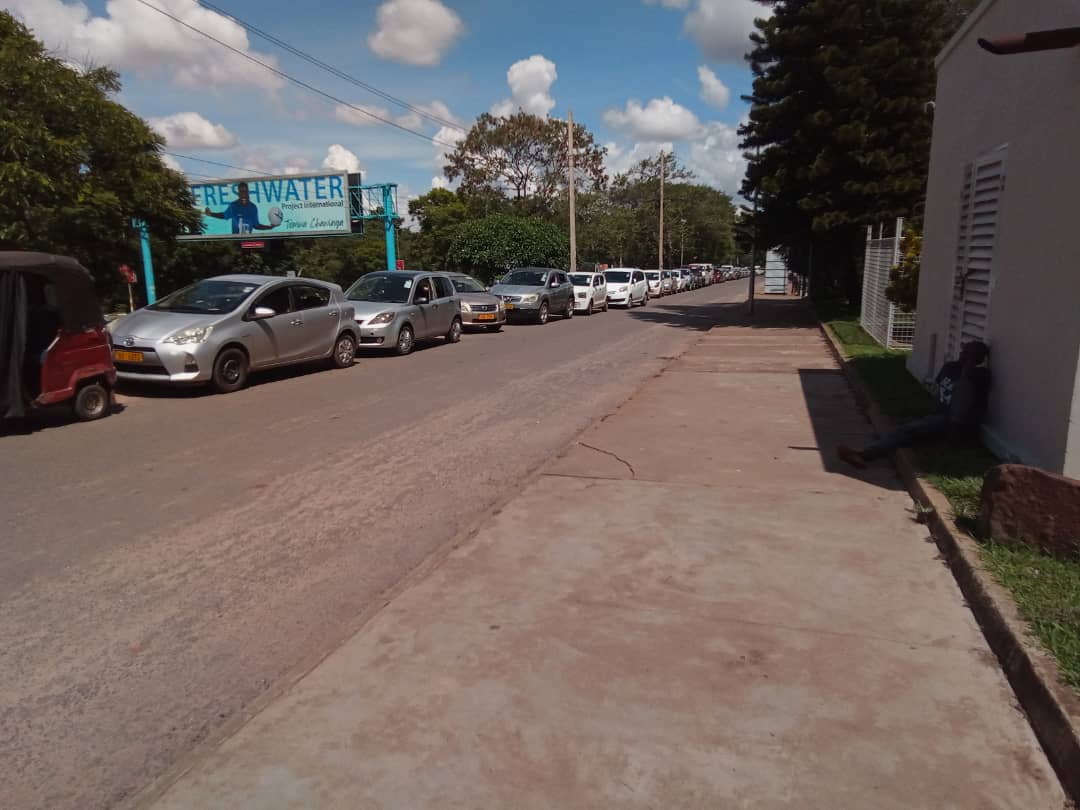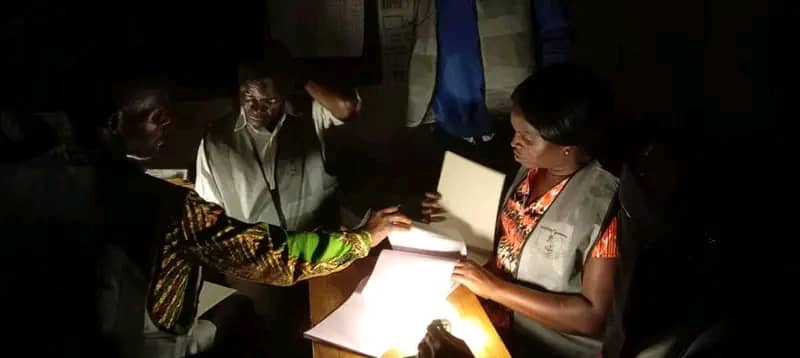By Burnett Munthali
Welcome Remarks
Thank you, Jones Gadama, for taking the time to participate in this interview. As an individual with a unique perspective on Malawi’s economic and energy landscape, your insights will be invaluable in understanding the persistent fuel shortages and their impacts on the country.
1) In your view, what are the core reasons behind the persistent fuel shortages in Malawi?
The core reasons behind the persistent fuel shortages in Malawi are multifaceted, but primarily, I attribute them to the government’s mismanagement of the economy, lack of strategic planning, and inadequate investment in the energy sector. The government’s failure to diversify the economy and reduce dependence on imported fuel has exacerbated the crisis.
2) How significant do you think the shortage of foreign currency is in exacerbating the fuel crisis in Malawi?
The shortage of foreign currency is a significant contributor to the fuel crisis in Malawi. The government’s inability to manage the economy and maintain a stable exchange rate has resulted in a scarcity of foreign currency, making it challenging to import fuel.
3) How would you assess the government’s role in handling the fuel shortage? Are there any policy gaps that need to be addressed?
I would assess the government’s role in handling the fuel shortage as inadequate. The government has failed to address the root causes of the crisis, and instead, has resorted to short-term measures that have not yielded sustainable results. There are significant policy gaps that need to be addressed, including the need for a comprehensive energy policy and strategic investment in the energy sector.
4) How efficient is Malawi’s fuel distribution system, and where do you see room for improvement?
Malawi’s fuel distribution system is inefficient and in need of reform. The government’s control over the fuel distribution system has created bottlenecks and inefficiencies, leading to frequent fuel shortages. There is a need for liberalization and privatization of the fuel distribution system to increase efficiency and competition.
5) What are the broader economic impacts of the ongoing fuel shortages on both businesses and households?
The broader economic impacts of the ongoing fuel shortages are severe. The shortages have resulted in increased transportation costs, reduced economic activity, and decreased productivity. Businesses and households are bearing the brunt of the crisis, with many struggling to access fuel for their daily operations.
6) How have the fuel shortages affected essential public services such as transportation, healthcare, and education?
The fuel shortages have significantly affected essential public services such as transportation, healthcare, and education. Many public transportation services have been disrupted, while healthcare services have been compromised due to the lack of fuel for ambulances and medical equipment.
7) How would you rate the effectiveness of the Malawi Energy Regulatory Authority (MERA) in managing fuel supply and regulation during this crisis?
I would rate the effectiveness of MERA in managing fuel supply and regulation during this crisis as inadequate. MERA has failed to ensure a stable fuel supply, and its regulatory framework has not been effective in preventing the fuel shortages.
8) How does the fuel crisis in Malawi compare with the situation in neighboring countries? Is Malawi being isolated in this issue?
Malawi is not isolated in the fuel crisis, as many neighboring countries are also experiencing similar challenges. However, Malawi’s situation is exacerbated by its landlocked position and lack of strategic fuel reserves.
9) What role should the private sector play in addressing fuel shortages, and what incentives should be introduced for them to participate actively?
The private sector has a critical role to play in addressing fuel shortages. The government should incentivize private sector investment in the energy sector, including the development of strategic fuel reserves and the liberalization of the fuel distribution system.
10) Do you believe political factors or mismanagement have contributed to the ongoing fuel shortages? How can these issues be mitigated?
I believe that political factors and mismanagement have contributed significantly to the ongoing fuel shortages. The government’s lack of transparency and accountability in the management of the energy sector has created an environment conducive to corruption and inefficiency.
11) Should Malawi consider investing more in renewable energy sources as a long-term solution to reduce dependence on imported fuel?
Malawi should consider investing more in renewable energy sources as a long-term solution to reduce dependence on imported fuel. Renewable energy sources such as solar, wind, and hydroelectric power can provide a sustainable and reliable source of energy.
12) What immediate policy actions would you recommend the government to take in order to stabilize the fuel supply situation?
12) What immediate policy actions would you recommend the government to take in order to stabilize the fuel supply situation?
I recommend that the government takes immediate action to address the fuel shortage crisis. This includes increasing transparency and accountability in the management of the energy sector, liberalizing the fuel distribution system, and investing in strategic fuel reserves.
13) What long-term strategies should Malawi adopt to ensure consistent fuel supply and energy security in the future?
Malawi should adopt a long-term strategy to ensure consistent fuel supply and energy security. This includes investing in renewable energy sources, developing strategic fuel reserves, and promoting energy efficiency and conservation.
14) How do you think the general public perceives the government’s handling of the fuel shortage? Is there a loss of trust?
I believe that the general public has lost trust in the government’s ability to manage the fuel shortage crisis. The government’s lack of transparency and accountability has created an environment of mistrust and skepticism.
15) Looking ahead, what do you foresee as the possible outcomes if Malawi does not address the current fuel supply challenges adequately?
If Malawi does not address the current fuel supply challenges adequately, I foresee a bleak future for the country. The fuel shortages will continue to exacerbate, leading to increased economic hardship, reduced economic activity, and decreased productivity.
16) What is your final thought or recommendation regarding the fuel shortage issue in Malawi?
My final thought is that the fuel shortage crisis in Malawi is a symptom of a broader governance crisis. The government’s lack of transparency, accountability, and strategic planning has created an environment conducive to corruption, inefficiency, and crisis. To address the fuel shortage crisis, Malawi needs a fundamental transformation of its governance structures and institutions.
Closing Remarks
Thank you, Jones Gadama, for your time and thoughtful responses. Your insights are crucial in painting a clearer picture of the fuel shortage crisis in Malawi and the necessary steps to address it. We hope that your views will inspire meaningful discussions and solutions to this pressing issue.
Welcome Burnett. I feel great honored. I look forward to seeing the president walking the talk. Feel free to have me next time




